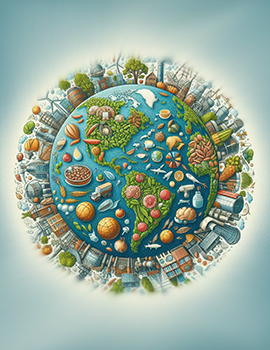Food systems significantly impact various facets of our world, including global health, food security and nutrition, economic and social development, and, importantly, the quality and status of the natural environment and the critical ecosystem services it provides. In fact, food systems are major drivers of global forest and biodiversity loss, land degradation, water pollution, and greenhouse gas emissions. As the world’s population nears eight billion people and continues to grow, pressure is building to increase efficiency and sustainability in food production, processing, and transportation, as well as reduce food loss and waste.
This evaluation will assess the degree to which food systems integrated programs and their constituent projects supported by the Global Environment Facility (GEF) address the root causes and downstream effects of environmental issues stemming from targeted food systems. The evaluation will consider both the design and implementation phases of supported programs and projects. Policy coherence, particularly concerning distortions caused by agricultural subsidies, will be evaluated, as will the coherence with international assistance, given the multitude of donors operating in this sector. Furthermore, the evaluation will assess attention to gender considerations and the engagement of the private sector. The findings will be compiled into a comprehensive report slated for presentation to the GEF Council in June 2025.

